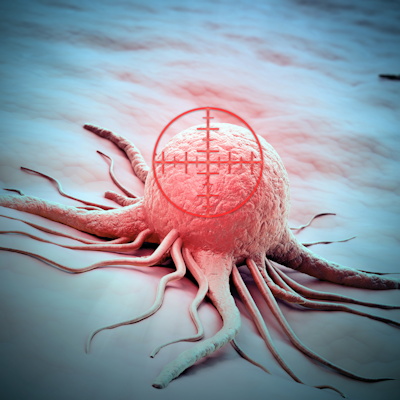 Inhibiting white blood cell enzyme reduces lung metastases in mice: study
Inhibiting white blood cell enzyme reduces lung metastases in mice: study
Researchers at The Wistar Institute and Jubilant Therapeutics have found an enzyme in neutrophils that promotes tumor growth and metastasis, pointing to a new way to treat cancers. Read More
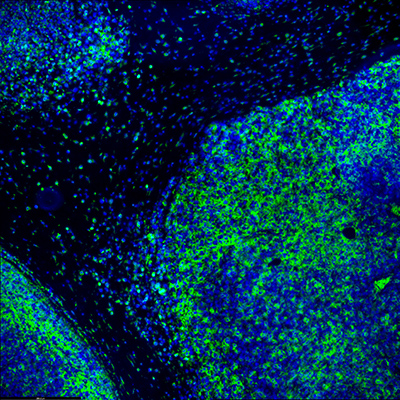 Stanford platform improves hunt for antigens that trigger strong immune responses
Stanford platform improves hunt for antigens that trigger strong immune responses
Researchers at Stanford University have developed a method for making faster, more accurate predictions of which antigens will trigger a strong immune response. Their work could help scientists develop more effective cancer immunotherapies. Read More
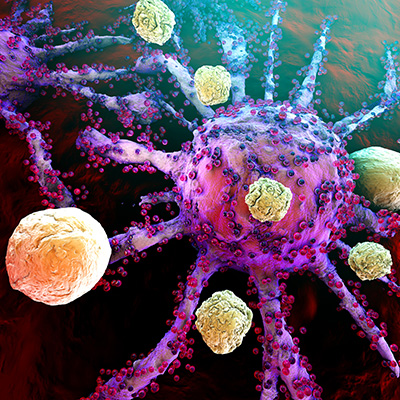 Blocking key enzyme boosts anticancer T-cell responses, resistance to immunosuppression
Blocking key enzyme boosts anticancer T-cell responses, resistance to immunosuppression
Blocking a key enzyme boosts anticancer T-cell responses and resistance to immunosuppression, according to a mice study from LSU Health New Orleans published August 26 in Frontiers in Immunology. Read More
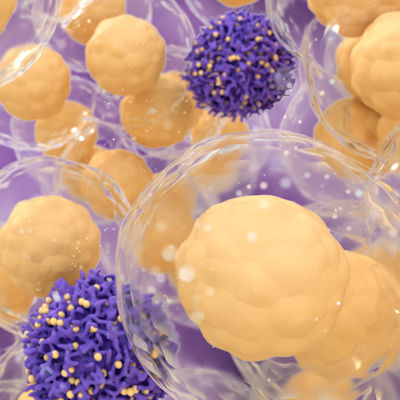 Oncolytic virotherapy, immunotherapy combo shows promise for treatment-resistant cancers
Oncolytic virotherapy, immunotherapy combo shows promise for treatment-resistant cancers
A combination of oncolytic virotherapy, a technique using cancer-fighting viruses, acting in concert with immunotherapy shows promise for treatment-resistant cancers, according to new research. Read More
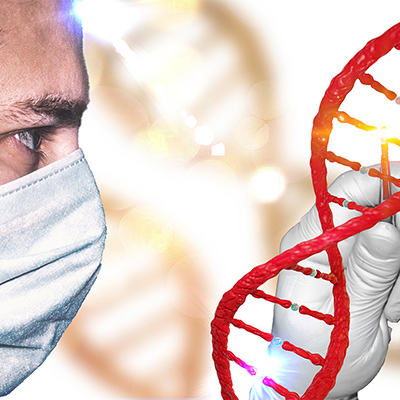 CRISPR reveals way to enhance the function, persistence of CAR T-cell therapies
CRISPR reveals way to enhance the function, persistence of CAR T-cell therapies
The use of CRISPR knockout screens have uncovered a new regulator of immunity that could enhance the function and persistence of anticancer T-cell therapies, according to a study published on August 24 in the journal Nature. Read More
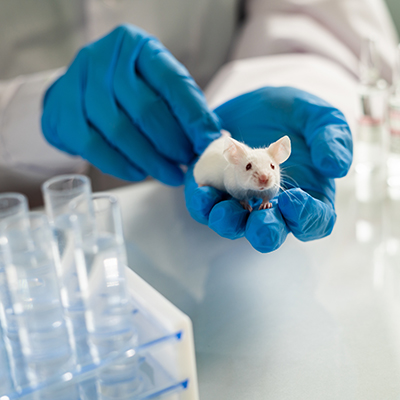 Localized delivery of IL-2 by drug-producing cells eradicates cancer in mice
Localized delivery of IL-2 by drug-producing cells eradicates cancer in mice
Implanting beads loaded with cytokine-producing cells eradicates advanced-stage mesothelioma tumors in mice, according to a study published on August 22 in Clinical Cancer Research. Read More
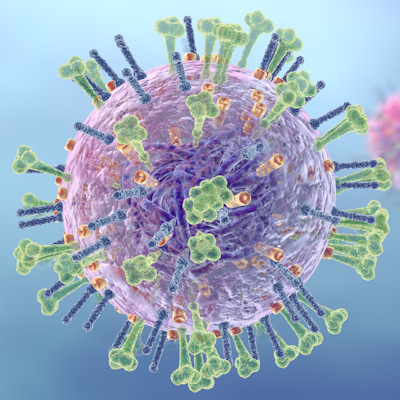 Antiviral-antibody combination improves influenza outcomes in mice
Antiviral-antibody combination improves influenza outcomes in mice
Researchers at McMaster University found in a mouse study that combining a class of well-known antiviral drugs and neutralizing antibodies was more effective than either approach alone, which they contend could be used to treat seasonal influenza and help prevent the next flu pandemic. Read More
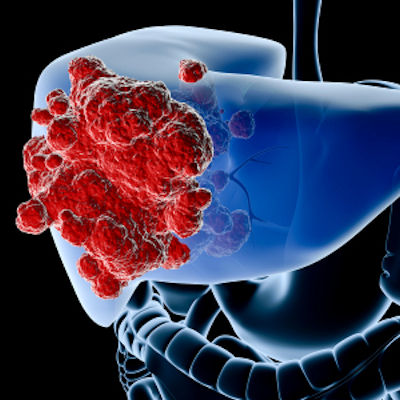 Hormone restrains growth of liver tumors in mice, offers therapeutic targets
Hormone restrains growth of liver tumors in mice, offers therapeutic targets
University of Michigan researchers have identified in a mouse study a hormone -- neuregulin 4 -- that serves as a checkpoint for the progression of nonalcoholic steatohepatitis and appears to have potential as a treatment for hepatocellular carcinoma, the most common type of primary liver cancer. Read More
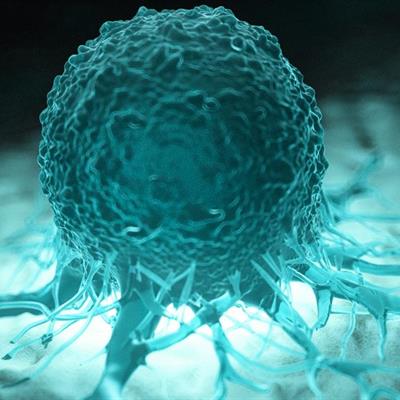 Synthesis breakthrough opens door to development of natural product as cancer therapy
Synthesis breakthrough opens door to development of natural product as cancer therapy
Princeton University scientists have halved the number of steps needed to synthesize pleurotin, setting the stage for work to realize the anticancer and antibiotic potential of the molecule. Read More
 First full map of immune system connections unlocks drug discovery opportunities
First full map of immune system connections unlocks drug discovery opportunities
Researchers have created the first full map of immune system connections showing how immune cells communicate, pointing to ways to modulate the pathways to treat cancer and infectious diseases. Read More
Conferences
Science Briefs
Member Rewards
Earn points for contributing to market research. Redeem your points for merchandise, travel, or even to help your favorite charity.
Research Topics
Interact with an engaged, global community of your peers who come together to discuss their work and opportunities.
Connect
Tweets by @ScienceBoard






